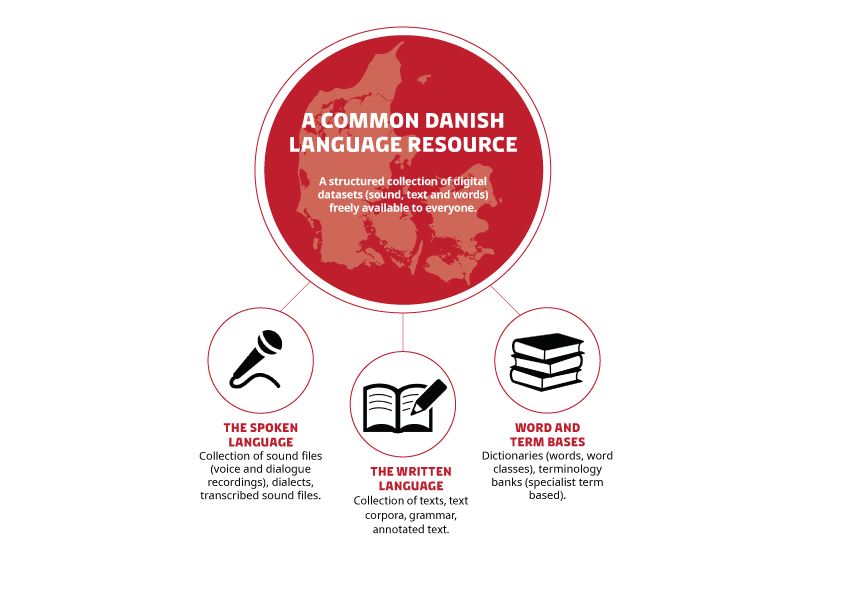Denmark to strengthen research and business opportunities for Natural Language Processing (NLP)
This is however about to change. As a part of the Danish National Strategy for Artificial Intelligence, the Danish government has decided to invest EUR 4 million in the development of an open and shared Danish language resource in collaboration with both private and public players.
An open and shared language resource will provide new opportunities for academia and industry and strengthen the development of AI solutions used in both the public and private sector.
In continuation of to the Danish National Strategy for Artificial Intelligence, IT University of Copenhagen are conducting a research project that will improve the quality of machine translations.
The research project, led by ITU associate professor Leon Derczynski and Manuel R. Ciosici of the University of Southern California, brings together the first so-called gigaword dataset (because it contains over a billion Danish words) that can make an automated translation service like Google's much more accurate. According to Leon Derczynski, the Danish Gigaword Project can improve the quality of everything from machine translation to tracking fake news in Danish.

Excellent research and cutting-edge NLP focused start-ups
Denmark are home to some of the strongest research groups within Natural Language Processing (NLP) in the world. In recent years, the University of Copenhagen’s Department of Computer Science (DIKU) has become one of the top places for Natural Language Processing research in Europe. This is now reflected by starting a dedicated NLP research section.Having a dedicated section on NLP, as other strong universities such as Stanford UNiversity, the UNiversity of Edinburgh or the University of Melburne do, will further help us increase international visibility
The Danish NLP research community is characterised by having an open and transparent approach to the development of NLP and it is even possible to find work from these research groups online, available for download as open source code. Furthermore, the NLP community work in close collaboration with industry in order to stay up-to-date with trends, partnership opportunities and to co-create new solutions.
The combination of an internationally acclaimed NLP community and an excellent innovative business environment creates a unique ecosystem for NLP focused start-ups to thrive in Denmark. Among the companies already taking advantage of this, is the world-leading Indian IT company Infosys, which has invested in the Danish start-up UNSILO to bring their semantic search engine to their global clients.
Another example of a Danish NLP start-up who have gained international traction is the start-up Corti. Corti have worked with researchers to create a solution to analyze emergency calls to 112 in order to guide first-aid responders. By combining voice- and pattern recognition technology they are able to predict cases of cardiac arrest and to help first-aid responders in arriving faster and provide better-informed treatment. Corti is being rolled out across Europe and also expanding in the US.
Ready to launch your NLP business in Denmark?
Anders Søgaard Professor at the University of Copenhagen
For AI, which is so heavily dependent on the trust of the end user, I think having strong public institutions, some oversight and a regulated market is going to be a real advantage in the long run.
